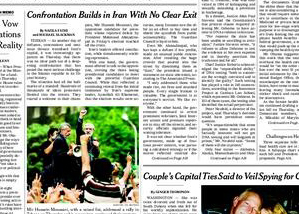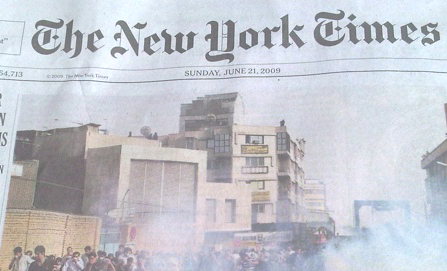“I’ve never lived something like that and I don’t think I will live something again like that,” – these are the words of El Pais staff writer Joseba Elola, reflecting on his work on the diplomatic cables released by WikiLeaks.
Speaking on a WikiLeaks roundtable discussion at #media140, Elola spoke about the journey from arranging to meet with Julian Assange for an interview, to helping El Pais join outlets such as the Guardian and Der Spiegel as a media partner of the whistleblower website in its release of more than 250,000 secret and confidential cables sent by US embassies around the world.
Three months after requesting an interview with WikiLeaks founder Julian Assange, the pair met, Elola told the conference.
He is a fascinating character, a brilliant person, extremely intelligent.
At the end of the interview I asked him if he had anything on Spain. Why don’t you include also a Spanish media as part of your launch, I asked him, why don’t you transfer your documents to El Pais, we will help.
He said let him mull it over. I came back to Madrid, I was excited and then quite an ordeal began.
You meet them, you see them, but then it takes a long, long while to get to see them.
I got an email from him three weeks afterwards and in the newsroom we were excited, finally that long-awaited email came asking for the specific number for the director.
I have never lived anything like it in my life, it was like witnessing history of the 21st century.
All of a sudden you get new information every day, day after day, it was a very exciting experience.
Speaking further with Journalism.co.uk he added that while he fears it will take “years before we manage to get another release of such relevant information”, he is “so happy to have been able to play a little role in that story”.
I hope we keep on being a reliable media for any platform; WikiLeaks, OpenLeaks, KanariLeaks, BrusselsLeaks or whatever.
I think the important thing is to keep your brand reliable to the public and I hope that the fact we were involved in Cablegate might raise some confidence in the people who leak information into the public, too.
I really think the media for years have been a little bit asleep and didn’t do their job properly, and I think WikiLeaks brought something really good for journalism and for society.

